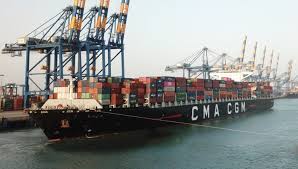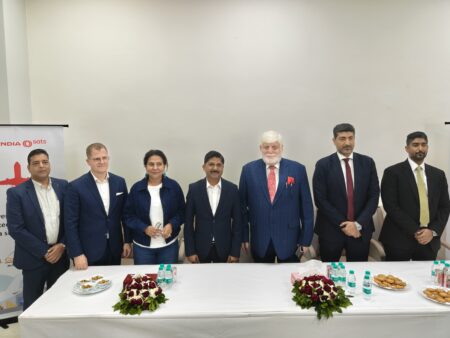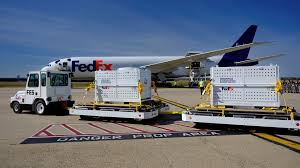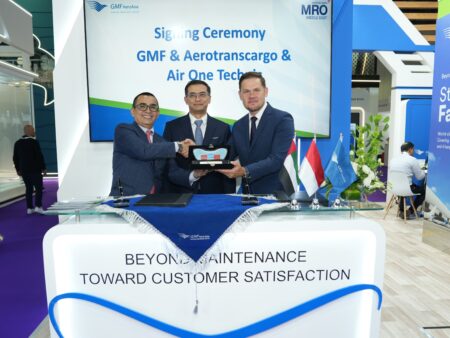Air cargo logistics are critical to a country’s economic development. The key players in the entire Air cargo supply chain are airlines, Air cargo terminal operators, Ground handling service providers, Integrated express service providers, Forwarders, Domestic cargo transport service providers, and Custom house agents. As a result, the Air cargo industry includes a diverse range of service providers working together to transport goods both domestically and internationally with the goal of providing faster and more efficient delivery. In developing countries such as India, an efficient logistics infrastructure can reduce transportation costs, directly contributing to the country’s international standing. An efficient logistics industry acts as an economic catalyst by creating new market opportunities and moving goods and services rapidly.

CURRENT SCENARIO
“The Air cargo market in India has witnessed steady growth despite the pandemic and how it impacted the economy,” says Satyaki Raghunath, Chief Strategy and Development Officer, Bangalore International Airport Ltd. The success of BLR Airport attests to this constant growth. During the calendar year 2021 (CY 2021), BLR Airport processed 406,688 metric tonnes (MT) of cargo, a significant increase of 28.6per cent from 316,305 MT in 2020. This was 7.2per cent higher than the previous year’s pre-COVID tonnage of 379,348 MT. BLR Airport is still the most important place for handling perishable shipments from India. It shipped 52,366 metric tonnes (MT) of perishables in FY 2021–22, up from 48,130 MT the previous year.
BLR Airport currently handles 41per cent of South India’s air cargo perishable tonnage, making it India’s leading airport for perishables. BLR Airport is just one of the success stories that have contributed to the Indian Air cargo market, which has seen significant growth in terms of technology and industry awareness in recent years.
India is currently regarded as one of the most competitive and lucrative markets, with many leading international industry players investing in strategic alliances. For instance, UPS’s launch of five-weekly flights connecting Bengaluru (BLR Airport) to key freighter markets around the world validates the fact that international players are eager to invest in India. Furthermore, in response to rapid growth in air cargo, several Indian airlines have decided to invest in their cargo and freighter operations in order to increase revenue and market presence.
CHALLENGES
“In today’s scenario, the challenges, as well as the opportunities for the Indian Air cargo market are numerous,” Satyaki retorts. As much as the pandemic presented a challenge, it also provided an opportunity to capitalise on the potential of the air cargo market and trade flows. Another challenge for the Indian Air cargo industry was the traditional method of tedious and time-consuming paperwork, an uncertain shipment tracking system, and huge costs incurred during the process. Because every step of the procedure was done by hand, there were errors in the documentation. However, during this time, the Indian air cargo industry banded together and collaborated closely with the government and technology service providers to overcome these challenges. Today, India’s air cargo industry is better positioned to capitalise on the country’s growth potential.
OPPORTUNITIES
“One of the reasons for the increased growth and revenue in Air cargo in India is the transformation in infrastructure, networks, and work structure,” Satyaki believes. Technology has proven to be one of the greatest boons to the Indian Air cargo industry, changing the industry’s dimensions and leading to digitisation. As technology has advanced, the process of transporting goods has become more transparent, instantaneous, and efficient. “The documentation is error-free and cloud-based, which requires less manpower and saves time.”
Technology has proven to be one of the greatest boons to the Indian Air cargo industry, changing the industry’s dimensions and leading to digitisation.
Satyaki
IMPACT OF NLP
“While it is still too early to comment on the implications of the NLP, the idea of having a strong National policy for logistics is an excellent idea and much needed,” Satyaki muses. I believe the policy will result in greater coordination between the government and industry in order to drive growth. “This is a positive step, and we anticipate that the industry will benefit greatly from it over the next decade.”
EXPECTATIONS FROM GOVERNMENT
“Cargo growth has proven to be quite resilient in recent times, particularly during the COVID crisis,” Satyaki estimates. This was evident in how the industry expanded by leaps and bounds during the COVID pandemic. “We have been extremely fortunate to receive round-the-clock support from government regulatory bodies and entities such as Indian Customs, the Plant Quarantine Office in Bangalore, the Agricultural and Processed Food Products Export Development Authority (APEDA), the Karnataka State Agricultural Produce Processing and Export Corporation Limited (KAPPEC), and the Government of Karnataka at BLR Airport.”











